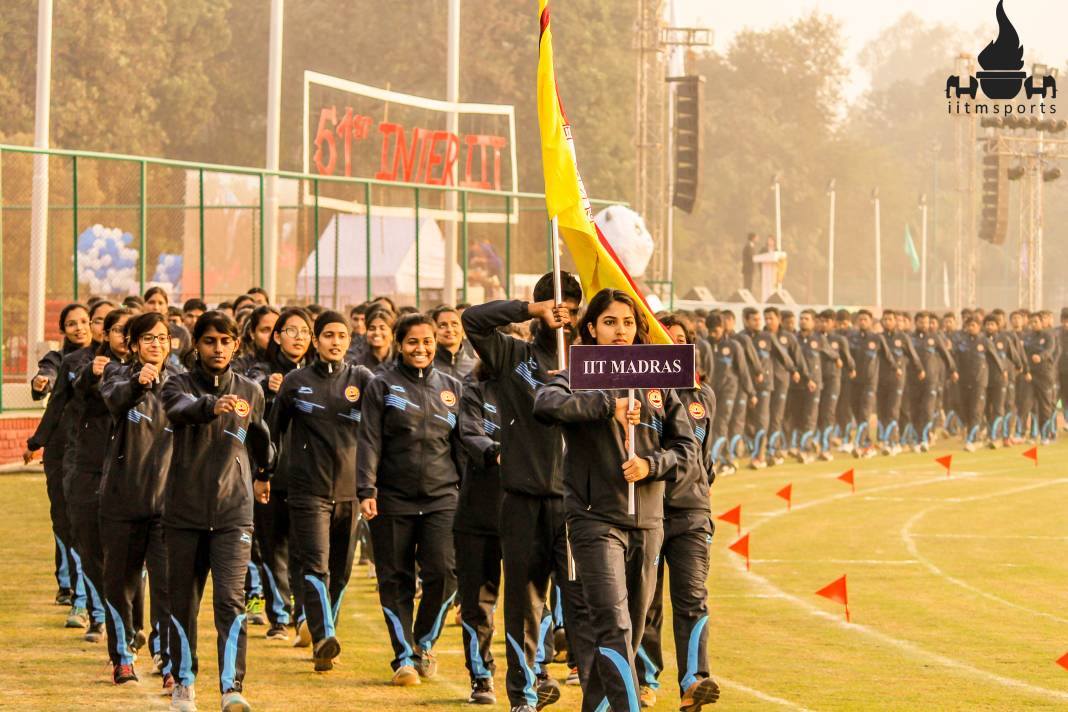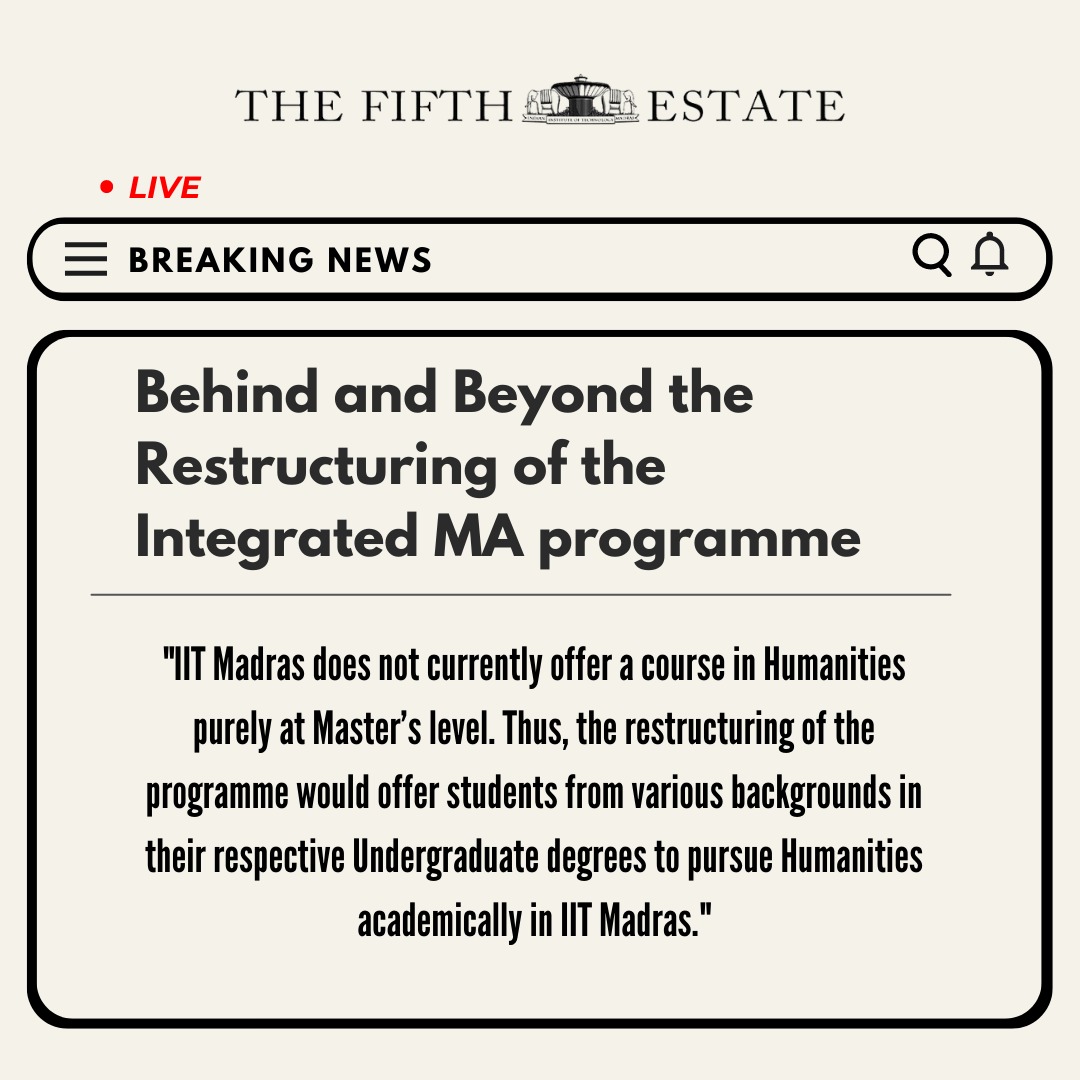Edited by: Sharayu Shejale
The following report is based on an interview with the GenSec dated 21st October.
The post of the Student General Secretary (SGS) is an important one, and a part of the elected executive wing of the institute. But what exactly does the SGS do? Here’s a rundown on all the functions of the SGS and what’s been done so far.
What are the SGS bodies?
As with any Institute Secretary, the SGS also has several bodies under his purview. The SGS is part of committees such as the Student Disciplinary Committee and CCASH. Any other student team which does not fall under the purview of any other secretary also comes under the General Secretary, such as EML (Extramural Lectures), Saathi, DMC (Disaster Management Committee) and iVIL (IIT for Villages). Apart from these, S-Net (Sustainability Network) has been revived this year.
What’s been done so far?
Freshers Immersion programme:
To bridge the gap between the school and college experience, the Immersion programme was brought in this semester, to improve the student’s experience in college and their well-being. The IIT Council guidelines made such an induction programme mandatory, but this was not being followed, and so a week of activities was planned for this year’s programme.
Classes for freshies started three days late so that a five-day-long programme could be conducted. A typical day of the programme consisted of an activity, followed by a lecture. These included stand-up comedy events, talks by graduating seniors, as well as icebreaker sessions. Students were also taken around different labs in various departments, and given a run-through on the research taking place in them.
QR Codes on Cycles: Security Changes:
One of the major sources of junk in the college is cycles and mattresses, as a lot of students discard them with no one to follow up on where they are left behind. As an alternative, stickers with QR codes were affixed to cycles, and the MobOps team has developed an application which can be used by the security guards to locate the owner of the cycle.
A possible problem with this, however, is that the QR codes are not durable enough, and the CSO is working on this. Another possible measure to reduce the number of discarded cycles is to introduce a no dues charge for cycles so old cycles can be recovered.
Revival of S-Net (Sustainability Network):
The S-Net has also been revived and added to the roster of SGS bodies.
What’s in the works?
Changes in the Faculty Advisors System:
Currently, the role of faculty advisors is uncertain, and hence a Senate sub-committee was formed, chaired by Professor Edamama Prasad, to enact the several changes. Firstly, systemic checkpoints were required to ensure that the faculty advisors interact with their advisees. For this reason, a Faculty Advisor week was devised, which would be the 1st and 10th week of the semester, where the advisors can meet and interact with their advisees. The 10th week of the semester was chosen as it would be the last week for course dropping, and students struggling with courses can approach their advisors regarding their issues at this time.
Secondly, to oversee this process for students across all semesters, a department level Faculty Advisor Coordinator was proposed. CGPA distribution of students is also to be observed over 2 semesters, and faculty advisors will be reshuffled after 2 semesters accordingly. They will also be informed by the Faculty Advisor Coordinator about students who need help, based on their academic performance. Different red flags were also identified, such as irregular attendance, and it was proposed to flag all such cases with the class committee after the quizzes. This information would then be forwarded to the faculty advisors.
Finally, to facilitate communication between any faculty member and a student’s faculty advisor, a long term change proposed was to add a feature that would allow the faculty member to directly contact the advisor of any student that has registered for their course.
Changes to the Saathi System:
Extensive training to be given to mentors. This would be done in the even semester, with 5-6 sessions being held for the current mentors on a range of topics, so that they can effectively guide their mentees. This semester, regular sessions were held for students’ well-being, such as the session on Ikigai. Despite a turnout of only 30-40% out of the total registrations, the feedback from the sessions has been good. Mores such sessions are in the works. Furthermore, collaboration with various teams to break the stigma around mental health, such as music for therapy is in the discussion stage, and would potentially be implemented in the next semester.
Changes in CCW/Hostel Rulebook:
Some unnecessary rules are present in the hostel rulebook, such as not using a personal computer for anything other than academic purposes. There has been a committee formed at the hostel management level too bring the rulebook up to date and remove these redundant rules. Suggestions have been taken from various hostels and the HAS (Hostel Affairs Secretary) regarding this.
What can we look forward to?
Student mental health/wellness assessments
There is also a proposal to implement a wellbeing assessment/evaluation for the students (this process is currently being headed by Prof. Viji, advisor of Saathi) to see where we stand in wellbeing on the campus as a whole, with the help of in-person surveys and other tools. This assessment will be integrated with an online portal that is accessed regularly, or by randomly sampling 20-30% of the students and asking them to fill these surveys in person.
Changes to the Hospital System:
There are discussions with the Hospital Advisory Committee to implement a token system and online reservation system, and the search for vendors who can put this system into place is ongoing. Furthermore, a feedback system for the hospital has been put into place with Google forms being sent out via Smail, and feedback forms being will be made available.
Some Concerns and their Response
Vigilance and Moral Policing:
The SGS’ official response to the issues of vigilance can be found here. There is a plan to take up the concerns raised regarding moral policing by the security with the DoSt and the Registrar. It is possible to give some sort of training to the security officers, so as to not harass students in the name of safety.
Official list of DISCO (Disciplinary Committee) Offences:
Rules are currently segregated into academic malpractice (which comes under Disciplinary Welfare Committee) and violation of hostel rules (which comes under the Dean of Students and CCW). The Hostel Disciplinary Committee rules are currently being updated. The Disciplinary Welfare Committee sends out a comprehensive set of rules before quizzes through Smail, which is being reshuffled to organise it better. The list of offences is not necessarily comprehensive.




